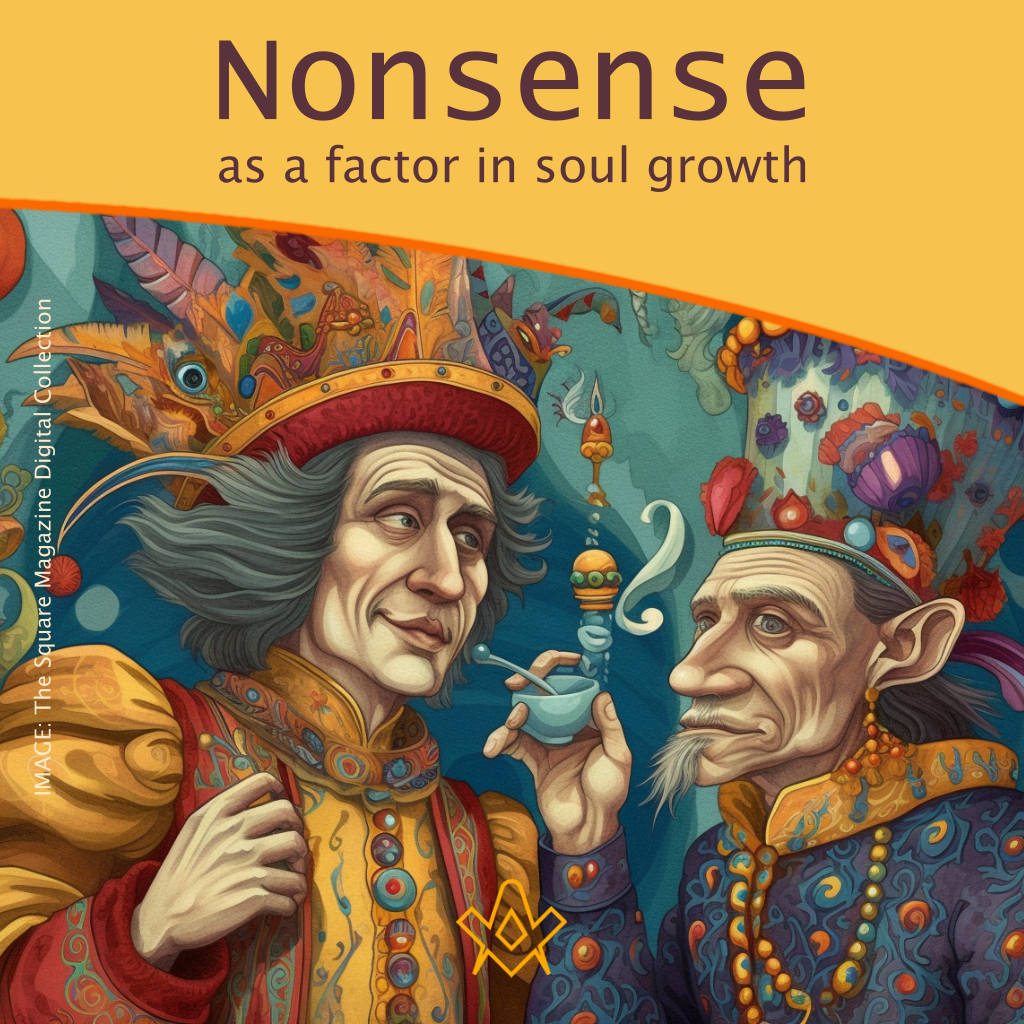There are times in the unfolding of human consciousness when the student feels and honestly believes that the entire weight of the Eternal Plan, the salvation of God, man, and the universe and the perpetuation of civilization, rests upon his shoulders.
He feels that when he passes out Truth will die with him and that his life must be so filled with duties that he has little, if any, time to demonstrate the qualities of the human race. Religion becomes such a weighty problem that he entirely forgets the necessity of humor and the value of mental and spiritual recreation, or, rather, we may say that lack of use has caused his sense of humor to atrophy.
Extracted from The All-Seeing Eye, Vol 1, 1923
Nonsense as a Factor in Soul Growth
Manly P Hall
The inevitable result of losing the ability to laugh and to relax the tension of massive thought and incessant labor is unbalance and ultimate spiritual crystalization, commonly known in the world of affairs as freakishness and crankism.
The ability of the philosopher to forget his philosophies and the mystic to lay aside his religion and smile with the world over some hopelessly trivial bit of nonsense is the sign of true superphysical greatness and spiritual balance.
All students of symbolism know that for ages a long face has been considered symbolical of religion and that the more sad you appear and the more dejected your countenance, the holier you are and the closer you are to a God who has long fore-sworn laughter.
This idea is based upon an entirely erroneous concept of life. The appreciation of humor is a divine faculty, the quick wit that it develops may be used for much deeper works, while the inevitable radiation of cheer which accompanies the happy person is just as important to the growth of humanity as the philosophical concepts which we expound and the problems of compound ratio.
There are those known in the world as “wet blankets,” “gloom dispensers’ and “Aunty-dolefuls” who in the name of God take all the cheer from life and with their blankets of pessimism totally eclipse the sun which might otherwise send to our hearts at least a solitary ray.
If there be an exceptionally high spot in Heaven, a brownstone front in the Great Beyond, we shall undoubtedly find it reserved for those mystics and philosophers, sages and seers, who have not only made man think and pray but have taught him how to laugh.
The world is filled with trials and worries, with long faces and hopeless souls which must be met along that weary road that leads to Light, but the Powers that be have seen fit to bring laughter into the world to cheer the weary hearts of striving men and women and to make this gift doubly sure have supplied a special set of facial muscles for its expression, and it is the duty of every student not only to promote aestheticism but also to bring into faces furrowed with care and hearts frozen in endless snows the happy smile which is indeed the greatest boon of the gods.
It takes the brightest man
in all the land
to make the greatest fool
All the greatest philosophers have been noted not only for their quickness of mind but for their sharpness of wit and in truth there is nothing which shows the depth of thought and knowledge of life more than an original joke which has something really funny in it.
There is an art in jesting which can only be appreciated after a suffering mortal has listened to what the world calls humor. This art should be listed with the seven immortal arts and sciences.
Let us remember the words of an ancient philosopher who said, when referring to the court jester of a king, “It takes the brightest man in all the land to make the greatest fool.”
The kingdoms of suffering humanity must have that court fool but few of our so-called religious lights will allow their faces to relax for fear that their dignity may be affected and their congregation dwindle away.
When we laugh from the depths of our soul, relaxing for a moment the nerves and muscles that have so long been at a tension in fighting the battle of life, it is like a gymnasium exercise for the body and a tonic for the soul.
The lungs fill with air, the liver receives its “‘daily dozen,” and the face beams with a greater joy because for one moment the purely human has been given expression in a way which can injure none.
Even those people who are unconsciously ridiculous will never realize nor be accredited with the honor that is due them from the fact that they have made others laugh, for while their personality is hurt and is many cases their noses are seriously cracked still that laughter will reach to the ends of creation before its last echoes die away at the very footstool of divinity.
It is said that the Christian theology is the only one that has not at least one laughing rod in its train, and we cannot but feel that there has been a serious omission. The laughter of the gods sounds through all nature which is filled with cheer, it is the sorrows and discouragements of life which turn all things to a leaden gray.
Those who radiate this soot colored expression of life are never popular, never happy, seldom useful, and always a bore.
The laughter of children is music in the ears of the Almighty and all living things are children who cry one moment and laugh the next, and of those moments which comes closest to the divine,—the joy or the tear?
All human beings are like little ones crying over broken dolls and the toys which have fallen to pieces in their hands, but their sorrows are short-lived and soon the bursts of merry laughter shroud the sorrow in forgetfulness.
But there are some who cannot forget and it is the duty of all to cheer them on their way, for every heart is filled with sadness and when we, too, are sad it but brings back memories which do not help but always surround us with thoughts of bitterness or remorse.
It is said that animals do not smile but it seems that they do, for every horse and dog and even the old cat purring on the hearth rug have a contented smiling appearance concealed somewhere about their faces.
Even the fowls of the farmyard with all their stateliness and dignity have a certain twinkle in their eyes and a certain upward curve at the corner of their bills which is often missing from the human physiognomy, and their dignity is all the greater because of its absurdity while man’s absurdities are always greater because of his dignity.
There is a psychology in humor, a moral effect upon all with whom we come in contact. It makes us friends, we are invited to call again in a voice which means it, it brings us closer to the hearts of others, it tries us more tightly to the truly human, it tears down the barriers of creed and caste and gives us a footing in the hearts of others.
There is no greater power which man can evolve than that of seeing all Nature smiling, every plant and flower wreathed in merriness, smiling because his own soul is laughing, filled and overflowing with that exuberance of spirit which marks the true expression of spiritual growth.
To see the laughter in nature, the joy in living, the good concealed beneath the ever painful, is a thing not always easy to do.
One must have within himself this Fountain of Mirth, which would have lengthened the life of Ponce de Leon had he not shortened his career by the seriousness of his search, which sees in everything not only the deep and mystical but the divinely and sublimely ridiculous.
When our hearts are about to overflow with sorrow, if we could but see with the eyes of the gods we would smile at least.
When we are about to be offended by the words and actions of others, if we could but think a moment, we would probably make matters much worse for it would be a Herculean task to restrain the laughter which would bring with it the wrath of our opponent.
You may say what you will, it is better far to see the ridiculous in life than the ever sordid, it is better far to laugh at the mistakes of man than to curse the decrees of God, and those who go around brewing cups of hemlock and radiating avalanches of gloom should indeed be listed with the false prophets and the blasphemers of God.
The man who cannot find something pleasant to say no matter where he may be, how unpleasant the experience, how uncongenial those around him, or how contrary to his taste the incident in question, should never claim even the first degrees of spirituality.
The mystic knows that in the last analysis all opposites blend, tragedy and comedy are one, and their apparently diverse ways are united at the doorway which leads to heights immortal.
So, laugh and list among the benefactors of humanity those who often with hearts filled with sadness have realized the sweetness of a smile and the gloriousness of mirth and who have been the fools to make their brothers laugh, their only reward being the realization that for a moment at least a few hearts have forgotten their sorrows and a few lonely wanderers have seen the sunny side of life.
There is nothing more contagious than joy and nothing more infectious than gloom. These two inseparable companions of mankind walk side by side, —gloom noted for its length, joy for its breadth, and their eternal battle for mastery one over the other must be played out in every human heart.
Acid temperaments make acid bodies, and the world is filled with intellectual alkalis which seem to stunt all the glories of nature.
The reward of gloom is dyspepsia, ankylotic joints, rheumatism, and sour stomach. Those who cannot smile ferment all the world and spoil a glorious crop by their own tiny apple and too often they do this in the name of God.
There are thousands whose motto for life is, “If ye smile upon the Sabbath, ye shall weep ere Monday dawn,” and other equally sentimental concepts of God’s demand of man.
Let us rather use as our motto “A smile a day keeps the doctor away,’ and the more smiles, the more “undesirables” are excluded from the aura of our association.
There are glooms of all kinds revolving in their orbits around us, but until the wet blanket enters our own hearts, we are master of them, and if our own lives are sunny the spirits of negation have little chance of entrance there.
One thing about the Devil that we always admire is the fact that he has a most resounding laugh and in spite of all his villainies there is a certain refreshment which comes over us even as we are chilled by his hilarity.
He does the most miserable things in the most jovial and likeable way and can even damn us with a smile upon his face, while many of our friends cannot even say “Good morning’ without looking like a heavy storm.
Occultists and occult students must realize that when they forget how to be jovial, they lock the door of Heaven and throw away the key.
Article by: Manly P. Hall
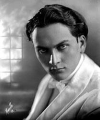
Manly P. Hall was a renowned Canadian author, lecturer, astrologer, mystic, and Freemason. His association with Freemasonry began later in his life. On June 28, 1954, Hall was initiated as a Freemason into Jewel Lodge No. 374, San Francisco.
He passed on September 20, 1954, and was raised on November 22, 1954. He took the Scottish Rite Degrees a year later. Hall was recognized as a 33° Mason, the second highest honor conferred by the Supreme Council of the Scottish Rite, at a ceremony held at the Philosophical Research Society (PRS) on December 8, 1973, almost half a century after writing his most famous work, "The Secret Teachings of All Ages".
Hall's writings on Freemasonry are considered significant contributions to the literature of the craft. His notable works include "The Lost Keys of Freemasonry" (1923), "Freemasonry of the Ancient Egyptians" (1937), and "Masonic Orders of Fraternity" (1950). These works delve into the philosophical and symbolic aspects of Freemasonry, reflecting Hall's deep interest in mysticism and the esoteric.
Hall's influence extended beyond his writings. He was a Knight Patron of the Masonic Research Group of San Francisco, with which he was associated for a number of years prior to his Masonic affiliations. His lectures and teachings have had a lasting impact on Freemasonry and the broader field of esoteric philosophy.
Recent Articles: Esoteric series
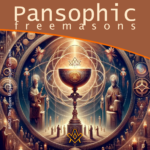 Unveil the secrets of Pansophic Freemasonry, a transformative journey through the ancient mystical traditions. Delve into the sacred realms of Rosicrucianism, Templar wisdom, Kabbalah, Gnosticism, and more. Discover the Graal, the sacred Grail that connects all esoteric paths. Embrace a holistic spiritual quest that reveals the profound mysteries of self and the universe. |
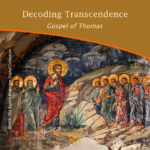 Dive into a spiritual journey where self-awareness is the key to enlightenment. The Gospel of Thomas and Masonic teachings converge on the profound truth that the path to transcendent wisdom lies within us. Embrace a diversified understanding of spirituality, emphasizing introspection as the gateway to a universally respected enlightenment. Explore, understand, transcend. |
 Philosophy the Science of Estimating Values Philosophy is the science of estimating values. The superiority of any state or substance over another is determined by philosophy. By assigning a position of primary importance to what remains when all that is secondary has been removed, philosophy thus becomes the true index of priority or emphasis in the realm of speculative thought. The mission of philosophy a priori is to establish the relation of manifested things to their invisible ultimate cause or nature. |
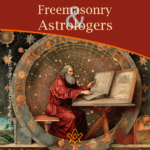 Unlocking the Mysteries: The Surprising Connection Between Freemasonry and Astrologers Revealed! Delve into the intriguing world of Freemasonry and explore its ties to astrological practices. Discover how these two distinct realms intersect, offering a fascinating glimpse into the esoteric interests of some Freemasons. Uncover the hidden links and unravel the enigmatic bond between Freemasonry and astrologers! |
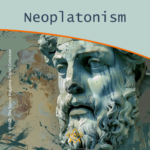 Neoplatonism, a philosophy with profound influence from the 3rd to the 6th century, merges Platonic ideals with Eastern thought, shaping Western and Middle-Eastern philosophy for two millennia. It emphasizes the unity of the individual with the supreme 'One', blending philosophy with theology and impacting major religious and philosophical movements, including Christianity and Islam. |
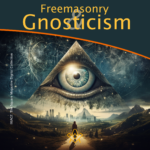 The enigmatic allure of Freemasonry's ancient rituals and Gnosticism's search for hidden knowledge capture the human spirit's endless quest for enlightenment. Between the stonemason's square and the Gnostic's divine spark lies a tantalizing intersection of philosophy, spirituality, and the pursuit of esoteric wisdom. Both traditions beckon with the promise of deeper understanding and moral elevation, inviting those who are drawn to unravel the tapestries of symbols and allegories. Whether through the fellowship of the lodge or the introspective journey of the soul, the paths of Freemasonry and Gnosticism represent a yearning to connect with something greater than ourselves—an impulse as old as time and as compelling as the mysteries they guard. |
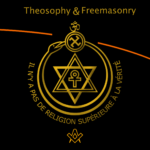 Embark on a journey through time and spirituality with our in-depth exploration of the Theosophical Society's Seal. This ancient emblem, rich with symbols, bridges humanity with the cosmos, echoing through the world's great faiths and diverse cultures. Our paper delves into the six mystical symbols, untangling their profound meanings and tracing their presence in historic art worldwide. Unaffiliated with worldly movements, these symbols open a window to esoteric wisdom. We also probe potential parallels with Freemasonry, seeking threads that might connect these storied organizations. Join us in unveiling the universal language of the spirit encoded within this enigmatic Seal. |
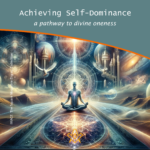 Discover the pathway to divine oneness through the concept of self-dominance. This thought-provoking essay explores the profound connection between self-control, spiritual growth, and achieving unity with the divine essence. With an interdisciplinary approach, it offers practical steps towards expanding consciousness and deepening our understanding of the divine. |
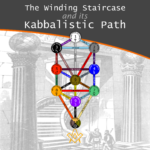 The Winding Staircase and its Kabbalistic Path The Winding Staircase in freemasonry is a renowned symbol of enlightenment. In this article, we explore its connection to Kabbalistic thought and how it mirrors the inner growth of a candidate as he progresses throughout his Masonic journey. From faith and discipline in Binah, to strength and discernment in Geburah, and finally to victory and emotional intuition in Netzach, each step represents a crucial aspect of personal development. Join us as we delve into the esoteric meanings of this powerful symbol. |
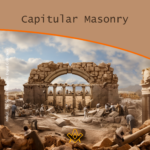 Unravel the mystic origins of Capitular Masonry, a secretive Freemasonry branch. Explore its evolution, symbolic degrees, and the Royal Arch's mysteries. Discover the Keystone's significance in this enlightening journey through Masonic wisdom, culminating in the ethereal Holy Royal Arch. |
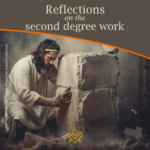 Reflections on the Second Degree Work Bro. Draško Miletić offers his reflections on his Second Degree Work – using metaphor, allegory and symbolism to understand the challenges we face as a Fellow Craft Mason to perfect the rough ashlar. |
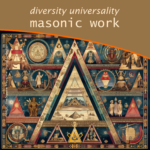 Diversity and Universality of Masonic Work Explore the rich tapestry of Masonic work, a testament to diversity and universality. Uncover its evolution through the 18th century, from the stabilization of Symbolic Freemasonry to the advent of Scottish rite and the birth of Great Continental Rites. Dive into this fascinating journey of Masonic systems, a unique blend of tradition and innovation. Antonio Jorge explores the diversity and universality of Masonic Work |
 Nonsense as a Factor in Soul Growth Although written 100 years ago, this article on retaining humour as a means of self-development and soul growth is as pertinent today as it was then! Let us remember the words of an ancient philosopher who said, when referring to the court jester of a king, “It takes the brightest man in all the land to make the greatest fool.” |
 Freemasonry: The Robe of Blue and Gold Three Fates weave this living garment and man himself is the creator of his fates. The triple thread of thought, action, and desire binds him when he enters into the sacred place or seeks admittance to the Lodge, but later this same cord is woven into the wedding garment whose purified folds shroud the sacred spark of his being. - Manly P Hall |
 By such a prudent and well regulated course of discipline as may best conduce to the preservation of your corporal and metal faculties in the fullest energy, thereby enabling you to exercise those talents wherewith god has blessed you to his glory and the welfare of your fellow creatures. |
 Jacob Ernst's 1870 treatise on the Philosophy of Freemasonry - The theory of Freemasonry is based upon the practice of virtuous principles, inculcating the highest standard of moral excellence. |
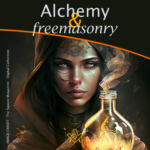 Alchemy, like Freemasonry, has two aspects, material and spiritual; the lower aspect being looked upon by initiates as symbolic of the higher. “Gold” is used as a symbol of perfection and the earlier traces of Alchemy are philosophical. A Lecture read before the Albert Edward Rose Croix Chapter No. 87 in 1949. by Ill. Bro. S. H. Perry 32° |
 The spirit of the Renaissance is long gone and today's globalized and hesitant man, no matter ideology and confession, is the one that is deprived of resoluteness, of decision making, the one whose opinion doesn't matter. Article by Draško Miletić, |
 A Mason's Work in the First Degree Every Mason's experiences are unique - here writer and artist Draško Miletić shares insights from his First Degree Work. |
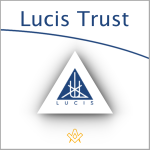 Initiation and the Lucis Trust The approach of the Lucis Trust to initiation may differ slightly to other Western Esoteric systems and Freemasonry, but the foundation of training for the neophyte to build good moral character and act in useful service to humanity is universal. |
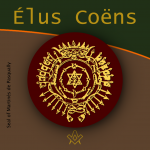 Who were the mysterious 18th century Élus Coëns – a.k.a The Order of Knight-Masons Elect Priests of the Universe – and why did they influence so many other esoteric and para-Masonic Orders? |
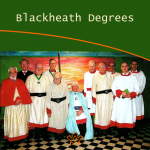 Bro. Chris Hatton gives us his personal reflections on the history of the 'house at Blackheath and the Blackheath Orders', in this wonderful tribute to Andrew Stephenson, a remarkable man and Mason. |
 Book Review - Cagliostro the Unknown Master The book review of the Cagliostro the Unknown Master, by the Editor of the book |
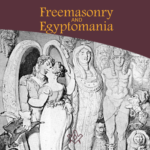 We explore fascinating and somewhat contentious historical interpretations that Freemasonry originated in ancient Egypt. |
 Is Freemasonry esoteric? Yes, no, maybe! |
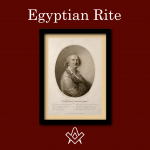 Egyptian Freemasonry, founder Cagliostro was famed throughout eighteenth century Europe for his reputation as a healer and alchemist |
masonic knowledge
to be a better citizen of the world
share the square with two brothers

click image to open email app on mobile device


